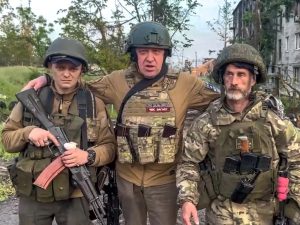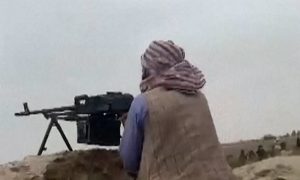Supporters of two Taliban factions came to blows at Afghanistan‘s presidential palace in Kabul following a heated exchange of words between senior leaders, according to a media report. Taliban co-founder, Mullah Abdul Ghani Baradar, whose disappearance from public view for several days sparked his death rumours, entered into an argument with Khalil ur-Rahman Haqqani, the minister for refugees, and a key member of the Haqqani Network, whose current head Sirajuddin Haqqani ( Khalil’s uncle) was appointed as interior minister in the “acting” government announced by the Taliban last week.
Taliban says their Deputy PM Mullah Baradar is alive, after reports of his death
Senior Taliban officials told the BBC that new deputy prime minister Baradar was unhappy about the structure of the Taliban interim government. The two leaders also argued about the credit for Taliban’s victory in Afghanistan.
Baradar became the first Taliban leader to communicate directly with a US president. He reportedly believes diplomatic moves, such as his telephone conversation with Donald Trump in 2020, had helped the Taliban regain control of Afghanistan after two decades.
Also read: Who is Mullah Abdul Ghani Baradar?
Baradar also represented Taliban during the Doha agreement on the withdrawal of US troops.
The Haqqani Network’s powerful influence on the Taliban became evident after several of its members were handed key responsibilities in the new government.
Sirajuddin’s brother Anas Haqqani is known as a key fundraiser, financier and operational commander for the Haqqani Network. Anas, who has served as a negotiator for the Taliban, was released in 2019 by Afghan government in exchange for the release of hostages held by the Taliban.
The deputy intelligence chief of the Taliban government, Mullah Taj Mir Jawad, is also considered to be a close aide of the the Haqqanis.
Khalil and Sirajuddin are both specially designated global terrorists with alleged close ties to al-Qaeda.
Founded by Sirajuddin’s father, Jalaluddin Haqqani, the Haqqani Network is said to have played a significant role in Taliban’s resurgence in Afghanistan after their ouster from power following the US invasion of 2001.






